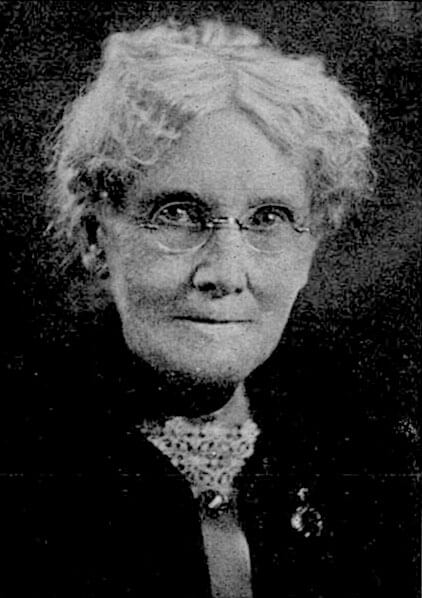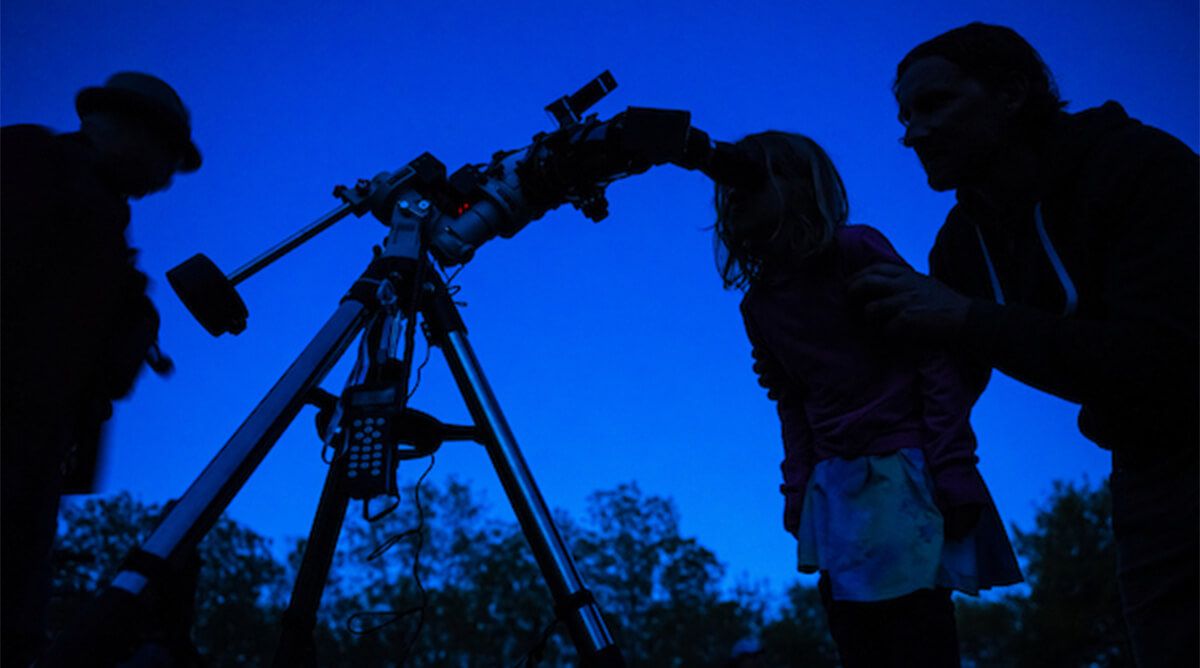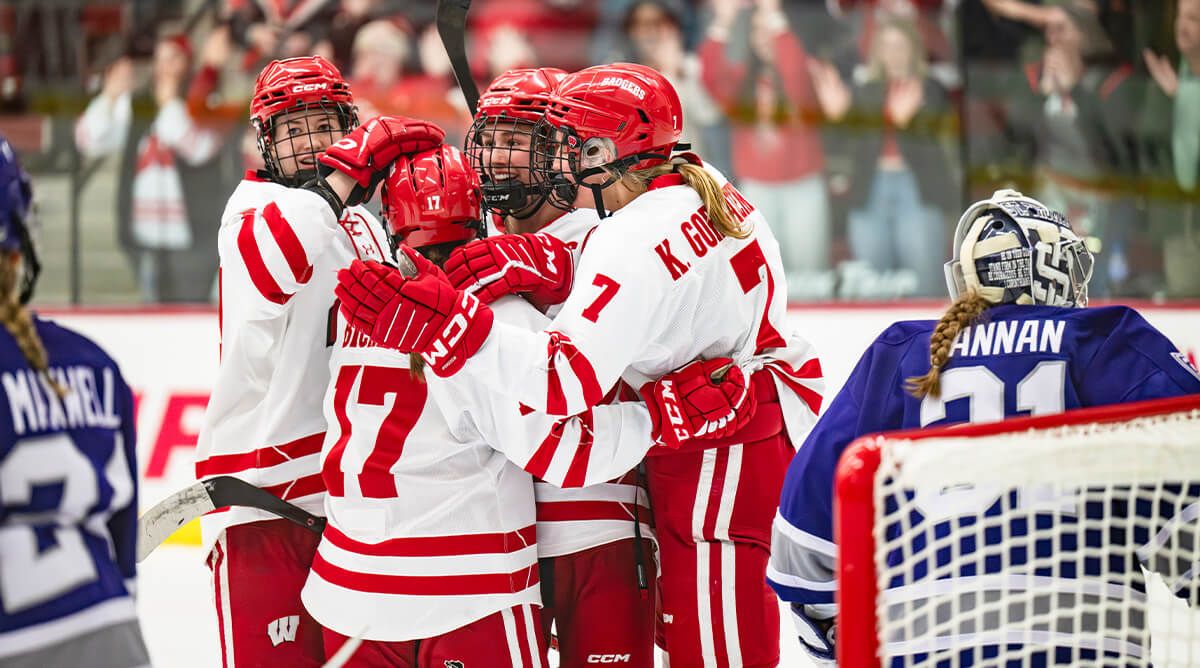The University of Wisconsin's First Female Students
For more than a decade, women were not allowed to attend the University of Wisconsin, nor any other university in the country, for that matter. In March 1863, UW established what was called the Normal Department, primarily to educate future teachers. Seventy-six women enrolled and in 1865, a separate graduation ceremony was held for six female students — the university's first alumnae — 11 years after the first graduating class of male students.
Learn more the students who attended the UW's first classes in 1849, and their connections to today’s UW-Madison.
In the beginning, these women were restricted to classes within the Normal Department and were not admitted to university's regular classes until 1868, when women were given access to all available courses. The Board of Regents maintained a separate Female College, in which women lived in a separate building, attended classes by themselves, and were in large part segregated from the rest of UW. Even their extra-curricular activities were highly restricted, including a weekly excursion to church under strict supervision, female-only literary society meetings, and limited sporting activities, such as skating, wicket and baseball.
This segregated system could not sustain itself, and eventually, with faculty support for integrated classes, the Female College was closed, new women's housing was built, and female students were allowed to attend the same classes in 1871.
The following is a recollection of those early years by one of the first women to graduate from the University of Wisconsin, Annie Taylor Noyes '1865, first printed in the Wisconsin Alumni Magazine in November 1928.

When Women Were First Admitted
By Annie Taylor Noyes 1865
When a Normal Department was added to the University of Wisconsin, and women were for the first time admitted to the institution, Prof. Chas. H. Allen was made principal of the new department. He had been principal of the Madison High School, and resigned the position to take the one at the University. His assistants were Miss Anna W. Moody of Geneva, and Miss Clarissa Ware of Madison.
There were only three buildings on the Campus—Main Hall, and North and South Halls. Previous to this time both North and South Halls were used as dormitories for men. With the advent of women, South Hall was given over to them, only the first floor being occupied by Professors Sterling and Allen and their families, and a small room reserved for a reception room. The building was partially heated by a hot air furnace, some rooms having a wood burning stove to supplement the furnace. Even so, on one occasion, which old timers still speak of as the Cold New Year’s Eve, students gathered in the large room on the third floor and played romping games until bed time, to keep warm. There was no running water in the building. An open well near the southwest corner of the building, equipped with buckets and a chain, furnished water which was carried to the rooms.
Evening Prayer Meeting
Kerosene lamps were used for lights. There was a barrel of kerosene in the basement to replenish oil cans as needed. Mrs. Allen boarded the students, a room in the center of the building being used for a dining room. There, at 9 o’clock each night, the chairs were set back from the tables, and at the ringing of a bell in the hall all students assembled in the dining room, unless previously excused. The roll was called, each responded with a verse from the Bible, and Prof. Allen offered prayer. At 10 o’clock a bell warned for “lights out.”
There were two debating or literary societies for men, the Hesperian and Athenean, and the women soon organized the first woman’s society, Castalia. Once, at least, Hesperia invited Castalia to attend one of their debates and the invitation was accepted, Miss Moody acting as chaperone.
Romance and a Lecture
Castalia met in a room on the top floor of South Hall, and usually had visitors from down town. The 9 o’clock roll call was omitted on evenings when Castalia met. At one meeting two young men were visitors, and at its close they stepped into the reception room to enjoy a few minutes chat with their two friends of Castalia. But the minutes slipped by into an hour or more, and when at last they started to leave, the front door was locked, and the key gone from its accustomed place. The four were dismayed, but at last one of the ladies summoned the courage enough to go to Prof. Allen in the parlor and ask for the key. He said “Don’t you know that all company should be dismissed at 10 o’clock and it is now after eleven?” After giving a short curtain lecture on the sin of disobedience, the key was given, and the guests took their departure. None but the two women implicated in the escapade ever heard of it, and if the young men called again they did not loiter after the meeting closed.
All recitation rooms were in Main Hall. There was no President. Prof. J. W. Sterling, who became associated with the University in 1848 and continued with it until his death, forty years later, was Dean of the Faculty. Prof. J. D. Butler conducted the devotional exercises each morning for the men, and heard recitations in Latin. Prof. Read had classes I Mental and Moral Philosophy and Political Economy. Prof. Fuchs taught German and Prof. Allen had classes in Zoology and Household Science. Prof. E. S. Carr had charge of Chemistry and Botany classes. Sometimes, when for any reason Prof. Carr did not want to meet his classes, his wife took his place, and on warm sunny days took the class outside under the shade of a tree. Botanical specimens were close at hand, the slope of the hill to the lake being covered with under-brush and trees, where hepaticas, anemones and other flowers blossomed in their seasons.
Board Fence and Stiles
There were no buildings nor trees on the south slope of the hill from the Main Hall to Mills St., and from the upper windows of South Hall one could see directly into Camp Randall where troops were drilling, and in a hollow of the hills beyond the camp see the fluttering yellow flag of the small pox hospital.
The University grounds (the word Campus was not then used) were surrounded by a board fence, with stiles at the head of State and Mills Sts. Soldiers going up town often came over the stile and through a little grove to the State St. stile.
State St., by the way, was a residence street, there being no business houses on it, except in one block nearest the Capitol Park. When one wanted books or other supplies it was necessary to go to J. E. Moseley’s Book Store on Pinckney St., or to go to W. J. Park’s, on King St.
One afternoon when coming on an errand from town, my room mate, who, because of her long curls looked younger than she really was, met a squad of soldiers. The last one in line picked her up and started off with her. She struggled to escape, but made no outcry. The man carried her a few steps then set her down and she ran, never stopping until she reached her room, her eyes big with fright.
Zona Gale’s Mother
One term I roomed with Zona Gale’s mother on Pinckney St. Her sister’s husband was in camp and it was rumored that the regiment would be sent to the front at an early date. The sister, with her baby, came to us and wanted us to go with her to camp. It was Sunday morning, and a snow had fallen the evening before. It was melting and the walks were covered with several inches of slush. There was no way to get to camp except to walk, and we walked, taking turns in carrying the year-old baby. Arriving at camp we found Jake packing his knapsack and discarding bulky or unnecessary articles. The train pulled up near camp and we saw him get aboard. Pullman cars were not yet invented, and in this train there were no day coaches, just box freight cars fitted up with plank seats. There was no complain of poor accommodations, the boys were only too glad to go to the front and help preserve the Union. The train pulled out, Jake waving his hand to us as long as he was in sight. That was the last time he saw his wife and baby. His body lies somewhere in the Southland.
In ’64 there were no commencement exercises, the seniors having all enlisted and gone to war. Prof. Allen enlisted and was made Captain of a company. One pleasant afternoon he brought his company to the grove before South Hall for a picnic or informal reception. The women students passed refreshments of lemonade and cake, and the band played.
Candles Lighted Victory
News came that Gen. Robert E. Lee had surrendered his forces to Gen. U. S. Grant, and it was felt that in some way our rejoicing should be shown. It was decided to illuminate the building, and a half of a tallow candle was placed on the sash back of every pane of glass. As night came on these candles were lighted, furnishing the illumination.
June, 1865, Commencement week. The men gave their orations from the stage in the City Hall, where a room was used for theaters. The women read their essays next day on the platform of the Congregational Church, now the Chapel. It was not until several years later that men and women received their diplomas at the same time, in the Assembly Chamber of the Capitol.
Class Roster: 1865 Normal Graduates
- Mary (Allen) Curtis
- Clara (Chamberlain) Porter
- Annie Chamberlain
- Hettie (Rusk) Nichols
- Lydia (Sharp) Winterbotham
- Annie (Taylor) Noyes









